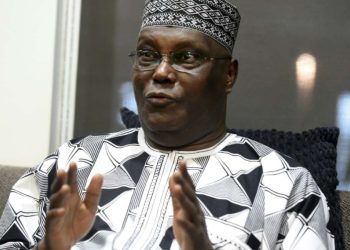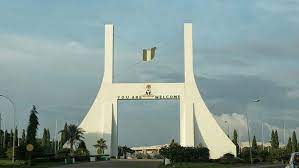Civil Society Legislative Advocacy Centre (CISLAC) on Wednesday said blocking revenue leakages and Illicit Financial Flows (IFFs) would help in reducing Nigeria’s debt accumulation.
Mr Auwal Rafsanjani, the Executive Director, CISLAC and Transparency International, Nigeria, gave the advice at a one-day dialogue on the status of adoption of High Level Panel (HLP) report on IFFs in Economic Community of West African States (ECOWAS) in Abuja.
The dialogue was organised by the West African Tax Administration Gorum (WATAF) with support from Oxfam in Nigeria.
Rafsanjani said that the workshop was aimed at strengthening sub-regional coordination towards implementation status of the HLP report recommendations.
He said that it was also to identify and prioritise key tax justice issues that confront the West Africa region and to undertake mapping of key partners for strategic engagements, among others.
According to him, Nigeria is losing billion of dollars annually to IFFs encouraged by multinationals and foreign countries.
He said that there was need for the government to see the menace as major threat to the nation’s social economic well-being.
“NASS has the responsibility to ensure that leakages are blocked and financial outflow that is going on is minimised.
“As it is, there is no conversation and debate in the National Assembly to discuss this very important high level report and we are losing billions of dollar annually.
“They need to wake up to their responsibility,” he charged.
According to Rafsanjani, it is when the national assembly begin to interrogate government’s policies, practices and implementation that the nation will get governance right.
He added that the national assembly should talk to the Central Bank of Nigeria, the regulating body for financial institutions to ensure that they block all financial leakages causing the nation shortage.
“We cannot be loosing these huge amount of billions annually and CBN is not showing so much interest in blocking the leakages.
“They should discuss with finance minister on how to block it because it is undermining the progress of the country,” he said.
Rafsanjani also called for the need for African Civil Society Organisations and partners to properly problematise IFFs and develop distinctly African policy responses.
Mr Babatunde Oladapo, the Executive Secretary, West Africa Tax Administration Forum (WATAF), listed illegal arms trade and terror financing, smuggling of agricultural and mineral resources, oil racketeering and misuse of public funds as some of the IFFs.
Oladapo said that the whistle blowing policy and the extractive industry transparency initiative and tax reforms were part of the measures put in place by the government to curb IFF.
He identifed proliferation of multinational cooperation’s, innovative use of tax havens and paucity of information exchange between countries as some of the challenges to IFF.
Mr Adeyemi Dipeolu, the Special Adviser to the President on Economic Matters in the office of the Vice President, listed some of the drivers of IFF.
Dipeolu said they included double taxation, poor governance, weak regulatory structures,tax incentives and financial secrecy jurisdiction, among others.
“Deu to this, the following recommendations were made: African countries should ensure they have clear and concise laws.
“This is against mis-stating the price, quantity, quality or other aspects of trade in goods and services in order to move capital to another jurisdiction or avoid taxation.
“African countries should establish arrangements for exchange of tax information between them as well as with global partners.
“African States should establish or strengthen the independent institutions and agencies responsible for preventing IFFs,”













